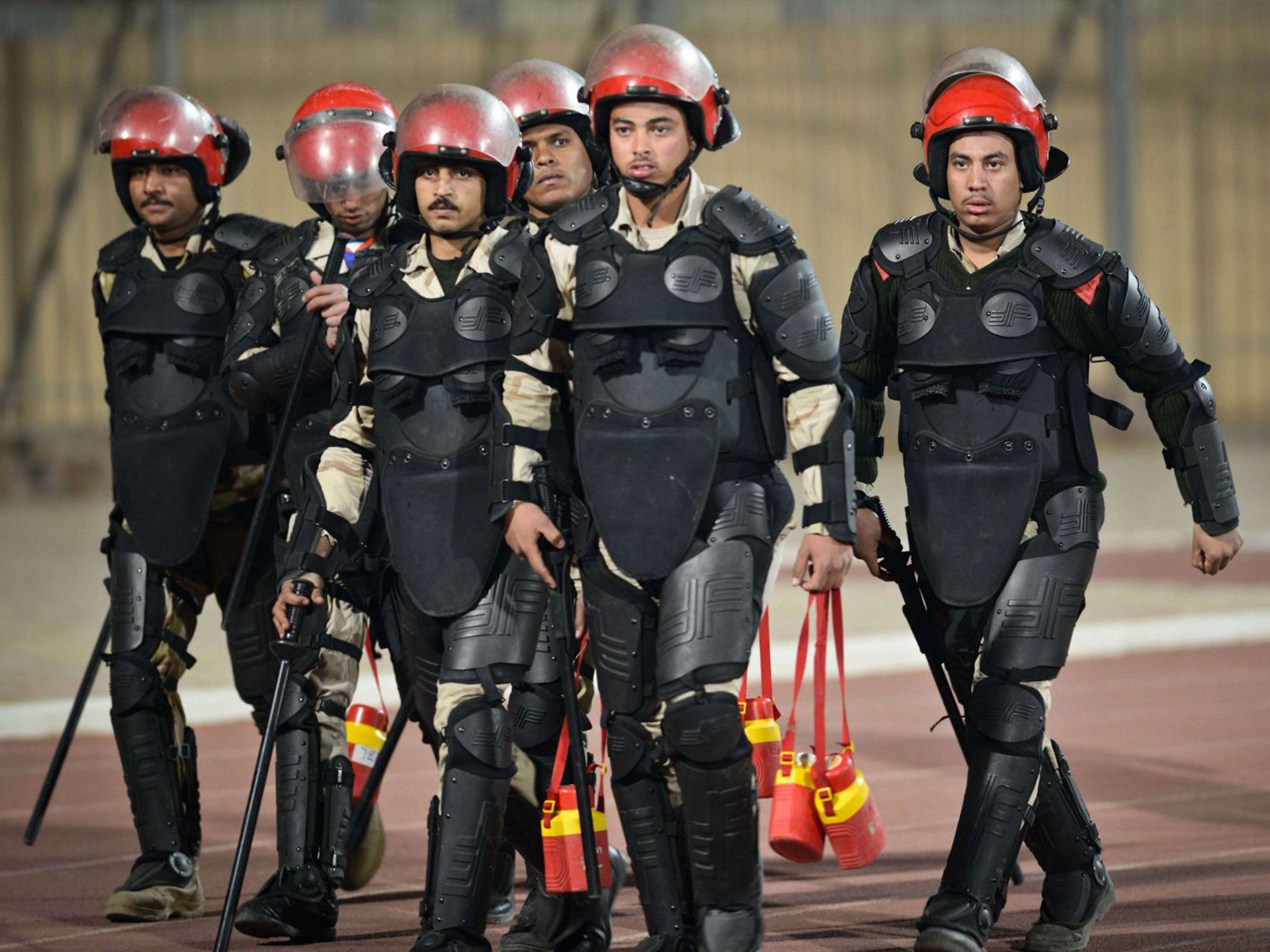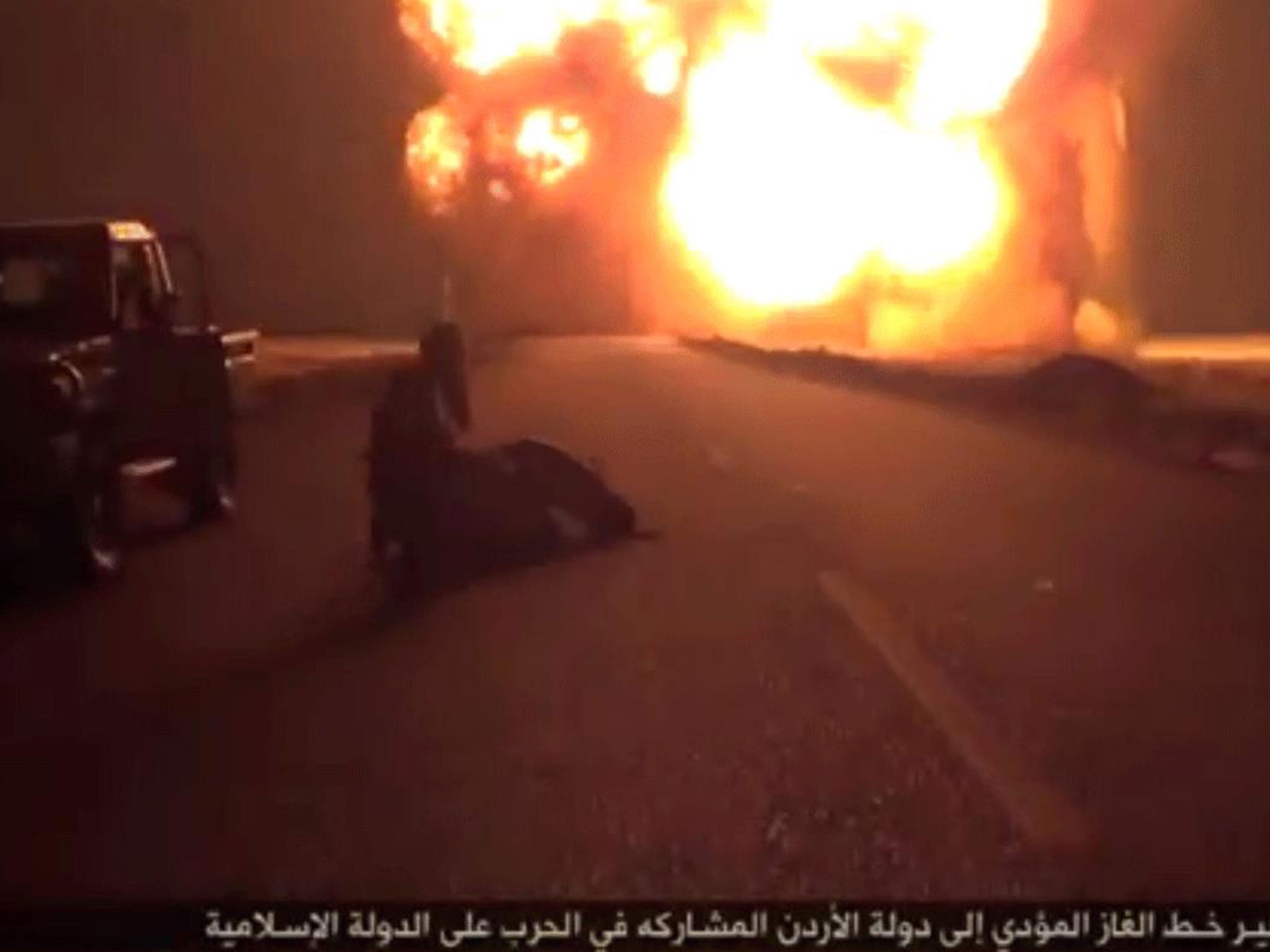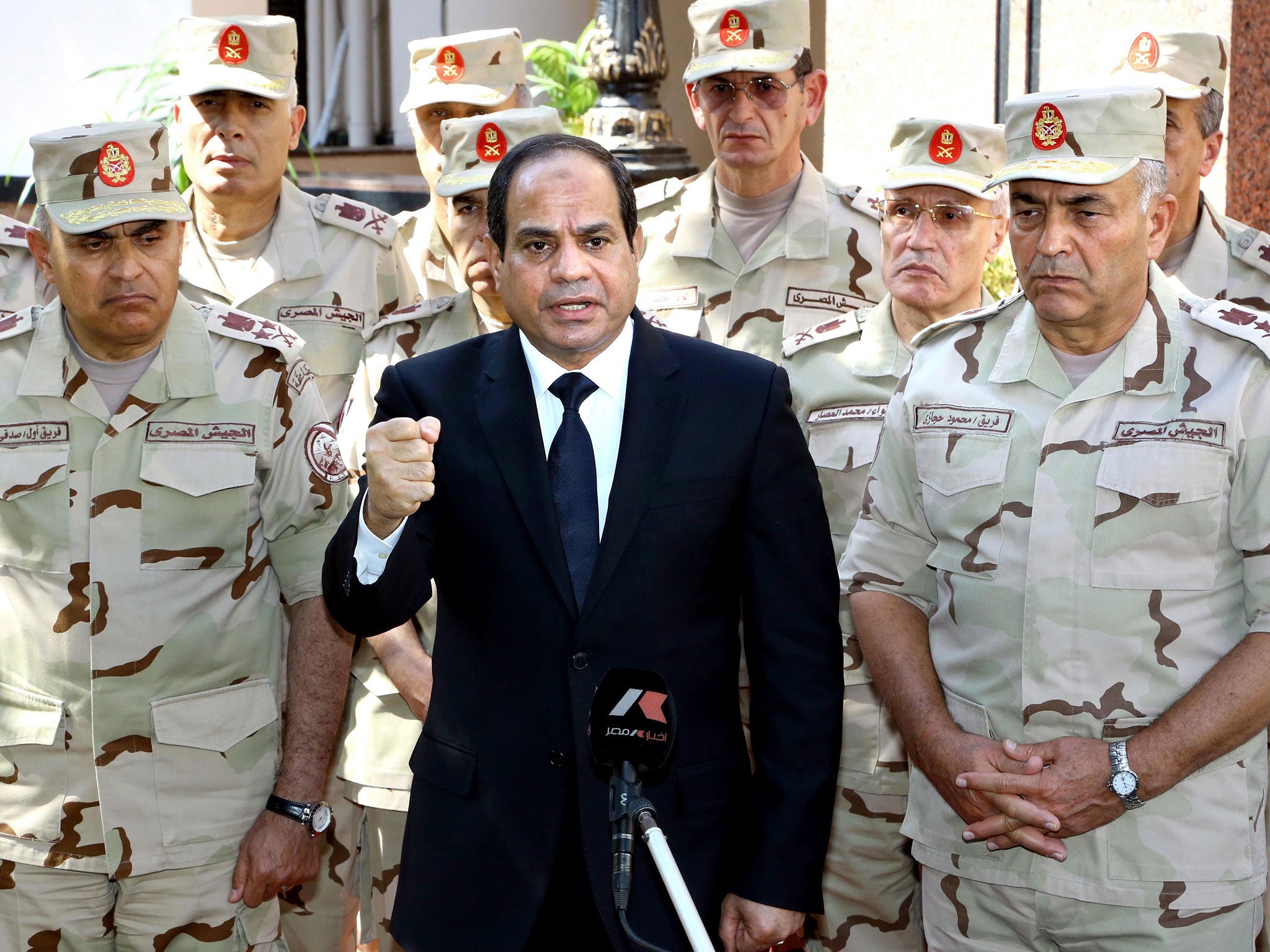Egypt attacks: Isis-affiliated terrorist group kills 26 people in bomb and rocket strike in Sinai Peninsula
Waliyat Sinai, part of Ansar Beit al-Maqdis, targeted the military and police

Your support helps us to tell the story
From reproductive rights to climate change to Big Tech, The Independent is on the ground when the story is developing. Whether it's investigating the financials of Elon Musk's pro-Trump PAC or producing our latest documentary, 'The A Word', which shines a light on the American women fighting for reproductive rights, we know how important it is to parse out the facts from the messaging.
At such a critical moment in US history, we need reporters on the ground. Your donation allows us to keep sending journalists to speak to both sides of the story.
The Independent is trusted by Americans across the entire political spectrum. And unlike many other quality news outlets, we choose not to lock Americans out of our reporting and analysis with paywalls. We believe quality journalism should be available to everyone, paid for by those who can afford it.
Your support makes all the difference.An Isis-affiliated terrorist group has killed at least 26 people in coordinated rocket and bomb attacks on the Egyptian military and police in the Sinai Peninsula.
Ansar Beit al-Maqdis launched the assault on three towns on Thursday, detonating a car bomb outside a military base as mortars were simultaneously fired at the stronghold, destroying buildings and burying soldiers under the debris.
The capital of North Sinai, el-Arish, was targeted along with the nearby towns of Sheik Zuwayid and Rafah, which sees regular conflict because of its position on the border with Gaza and the crossing there.
At least 60 people were wounded, according to medical officials, who warned that the death toll was expected to rise.
The Egyptian Army immediately issued a statement accusing former President Mohamed Morsi's Muslim Brotherhood of orchestrating the attack.
But hours before, Ansar Beit al-Maqdis had posted pictures of masked militants dressed all in black, carrying rocket-propelled grenades and flying the black flag of Isis, from its Twitter account.
The militant group, which emerged after the 2011 Egyptian revolution, later claimed responsibility, saying on Twitter that two suicide bombers and three car bombs struck an army base and adjacent security building in el-Arish — the deadliest of all attacks.
Explosions smashed windows and shook residential areas, causing an electricity blackout across the city.
The post called it “an extensive simultaneous offensive for the soldiers of the caliphate” and listed at least eight checkpoints that also came under attack in the three locations.

The US State Department condemned the attack, saying: “The United States remains steadfast in its support of the Egyptian government's efforts to combat the threat of terrorism in Egypt as part of our continuing commitment to the strategic partnership between our two countries.”
The group, which has several factions, has launched several attacks against police and the army in Sinai in recent years.
It was initially inspired by al-Qaeda, but the Sinai group pledged allegiance to the so-called Islamic State last year as it overran large parts of Syria and Iraq.
In November, Sinai followers changed their name to Sinai Province, or Waliyat Sinai, reflecting its loyalty to Isis, while allies operating in over the border in Gaza have renamed themselves the Islamic State in Gaza.
Militants in other parts of Egypt are believed to remain loyal to al-Qaeda.
The same group claimed responsibility for a similar wave of deadly attacks on Egyptian army positions in Sinai on 24 October last year.
At least 30 soldiers were killed and the bombing prompted a continuing state of emergency in North Sinai, curfew and tensions that spilled over into Israel, which closed the Rafah crossing to Gaza and caused Hamas to postpone peace talks.

Ansar Beit al-Maqdis posted a video online apparently filmed during the attacks, showing militants spraying soldiers with bullets and vowing more terror to come.
Egypt's army chief-turned-president, General Abdel Fattah al-Sisi, who led the deposing of Morsi, has been depicted as by nationalist media as the rescuer of Egypt from Islamic militancy.
He led an internationally-criticised crackdown on the Muslim Brotherhood, who staged regular demonstrations demanding the former President’s reinstatement, imprisoning thousands and killing hundreds during in street protests.
In apparent retaliation, militants launched a spate of attacks that ranged from homemade explosive devices to suicide attacks.
Egyptian security forces have attempted to uproot militant networks in northern Sinai but tensions over poverty and a feeling of neglect by Cairo as tourist resorts in the south prosper have fuelled support.
Additional reporting by AP
Join our commenting forum
Join thought-provoking conversations, follow other Independent readers and see their replies
Comments